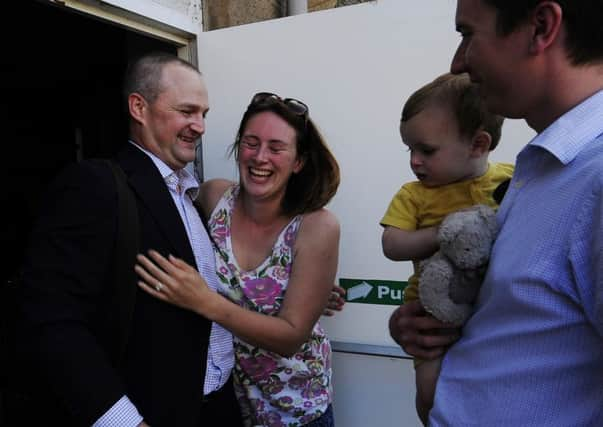Around 5,500 regional investors back new potash mine


Yuen Low, a mining analyst at Shore Capital, said that projected figures for the mine implied a very strong cash margin, although he acknowledged that securing funding for the project was still a significant hurdle.
There were jubilant scenes this week when a special planning meeting in Whitby agreed by just one vote to approve the plan for what could be the biggest potash mine in the world. Sirius Minerals, the firm behind the York Potash Project, saw its share price rise following the decision, although campaign groups opposed to the development have said they will consider legal action if a public inquiry into the process is not launched.
Advertisement
Hide AdAdvertisement
Hide AdFigures released by Sirius show that, in February this year, 5,518 of the company’s shareholders were from Yorkshire and the Humber, which is around 20 per cent of the overall total.
Mr Low told The Yorkshire Post that the company believes it could build the mine for around £1.7bn, and, according to cost estimates, produce polyhalite at around 30 US dollars a tonne and sell it at around 150 US dollars a tonne. Mr Low stressed that figures contained in a new definitive feasibility study, which is in the process of being completed, might differ.
He said: “These figures suggest attractive project economics, which would result in equity investors and debt providers being more willing to supply funds at cheaper rates. To further aid fund raising, Sirius is considering separate stages of financing. For example, it could turn to equity investors and providers of mezzanine finance to fund shaft sinking to begin with, and in the meantime, come to an agreement with debt funders to fund subsequent, less risky stages of construction and potentially even replace some of the more expensive earlier-stage financing.”
Paul Smith, an analyst at WH Ireland said: “When commissioned Sirius could be in production for more than 100 years. The polyhalite resource is extensive in this part of North Yorkshire and has yet to be properly explored – the current resource base is on only 13 per cent of Sirius’ licence, but there is every indication that the polyhalite is present in other areas of the licence. Once in production the project could be generating nearly £1bn of cash flow every year providing the expectations for the sale price for the polyhalite product can be realised, and there is every indication from several consultants with experience in the fertilizer market that this will be the case.”
Advertisement
Hide AdAdvertisement
Hide Ad“Sirius is well underway with its feasibility study which it has been working on in the background. This will be finished in due course over the course of the year while the company works on its funding options.
“Key management and directors have the experience of raising large funds for other mining and infrastructure projects in their previous careers and we believe there will be a number of options with regards to potential funding.”
There is always risk in any project at this stage in terms of the funding, building and commissioning, Mr Smith said.
He added: “In the case of Sirius, some of this has been de risked by the granting of the project permits for the mine and mineral transport system. Not only will the benefits be felt by Sirius’ shareholders but the sheer scale of the project means it will be felt at a national level in terms of export revenues which will impact on the balance of trade as well as national GDP. All of the material mined once in production will be processed by a simple process of crushing, grinding and granulation into a product which can be exported easily.”
Advertisement
Hide AdAdvertisement
Hide AdThe risks are moderate but should not be understated, said Mr Smith.
He added: “This is a huge project requiring substantial levels of financing and experience shows that share prices never move in straight lines. The key benefit to this week’s approvals is that Sirius is now back in control of its own destiny.”
Gareth Edmunds, Sirius Minerals’ external affairs director, said the company hoped to have completed the definitive feasibility study into the proposed mine in the Autumn.
According to Sirius, the mine will directly employ 1,070 people, and also support 1,000 jobs indirectly.
Advertisement
Hide AdAdvertisement
Hide AdMr Edmunds added: “There is still quite a bit of work to do before we get on the site.”
Mr Edmunds said he was pleased that such a large number of Yorkshire-based investors had supported Sirius.
He added: “There’s a huge amount of support. We have always acknowledged that and we are very grateful. They share in our success.”